TL;DR
- 🏆 Paddle of the Week: Holbrook ARMA T Carbon — a Gen 3 paddle with a patent-pending Dual Density™ core, offering explosive power, stiff feel, and elite stability.
- 🔥 Most Surprising: Engage Pursuit Pro1 12.7mm — a Gen 1 paddle that plays smoother and more modern than expected, with strong spin and surprising control.
- 🔁 Best Comeback Story: Ronbus Ripple V2 R4 — redesigned with FIRE Core foam and reinforced carbon; now USAP-compliant and built for serious spin and structure.
- 🧪 Wildcard: Unnamed prototype from a major paddle brand—powerful, precise, and potentially a game-changer once released.
- Full specs, play insights, and paddle recommendations now live in the full blog post. Watch the full video on YouTube
Introduction
Episode 12 of Paddle of the Week features a standout lineup that blends redemption, innovation, and one truly mysterious prototype. From Ronbus’s carefully rebuilt Ripple V2 series to Holbrook’s bold ARMA launch, this week’s testing slate includes some of the most compelling paddles on the market right now—and a few that surprised me more than expected.
Every paddle in this episode was tested in live gameplay, rec sessions, and drills to get an honest sense of how it performs when it counts. This isn’t about marketing hype—it’s about real-world play and how each paddle stacks up where it matters most: on the court.
The lineup includes:
- The Ronbus Ripple V2 (R1, R2, and R4), rebuilt from the ground up to address past issues and deliver Gen 3-level performance.
- The Engage Pursuit Pro1 Innovation 12.7mm, a Gen 1 build that plays more modern than expected.
- An unbranded prototype from a top-tier power paddle manufacturer that’s already swinging like a finished product.
- And the Holbrook ARMA series, a brand-new line that claims the top spot for its sharp feel, aggressive design, and structural originality.
Player Fit and Paddle Type
Ronbus Ripple V2 Series
The Ronbus Ripple V2 lineup is aimed at players who want spin, pop, and structure—but also need assurance that their paddle will stay within USA Pickleball compliance. These paddles are for experienced players who understand the tradeoffs between shape, swing weight, and forgiveness, and are willing to fine-tune their setup with added weight to extract full performance.
- R1.14 (Elongated): Ideal for players who value reach, drive power, and plow-through—especially in singles or third-shot-heavy play. With a swing weight of 124.45, it’s a demanding paddle that rewards strength and full commitment but may feel sluggish in fast hand battles.
- R2.14 (Widebody): The most balanced of the three shapes and the easiest to pick up and play. With a twist weight of 6.65, it provides immediate stability and feels dialed in for resets, blocks, and transition play. It’s a good fit for doubles players looking for a reliable all-around paddle with minimal setup.
- R4.14 (Hybrid): Best for high-intermediate to advanced players who want maneuverability without giving up power. This shape hits the sweet spot between speed and control, and with some added tungsten tape, it becomes a high-performance weapon for aggressive, fast-paced rallies.
Engage Pursuit Pro1 Innovation 12.7mm
The Pursuit Pro1 Innovation 12.7mm defies expectations for a traditional Gen 1 build. While it retains a classic polymer core and raw carbon surface, it plays with surprising control, depth, and spin responsiveness.
This paddle is best suited to:
- Players who generate their own power but want a paddle that enhances shot shape and feel.
- Athletes who favor topspin-heavy strokes, especially on third-shot drives and passes.
- Competitive players who prefer thinner builds but don’t want to sacrifice dwell time or feedback.
The head-biased swing weight gives it real plow-through on full strokes, but it also exposes late hands at the net. This is a paddle that performs best in the hands of someone who plays with precision and intent—not a tool that forgives loose technique or reactive footwork. Its low twist weight means mishits lose quality quickly, so players with clean mechanics will benefit the most.
Holbrook ARMA Series
Holbrook’s ARMA line marks a major shift in the brand’s identity, targeting players who want structure, stiffness, and straight-line explosiveness. These are Gen 3 thermoformed paddles, but with a distinct construction—a patent-pending Dual Density™ core—that plays firmer and louder than typical builds.
- ARMA T (Carbon or Metallic): Built for control-minded power players who like longer handles (5.75”) and want to drive through contact with crisp feedback. The carbon version is stiffer and more direct, while the metallic variant offers slightly more forgiveness on touch shots.
- ARMA X (Elongated): Designed for players who lean into aggressive backhand counters, reach-heavy returns, and full-stroke offense. The swing weight and tip bias reward deliberate mechanics, but penalize lazy resets or flicks.
- ARMA S (Standard Widebody): Best for players who prioritize speed and forgiveness in hand battles. With the lowest swing weight in the lineup, it’s highly maneuverable and ideal for quick exchanges and transitional defense.
This series is not built for softness or high dwell. It’s designed for competitors who want predictable pop, a solid structure, and a paddle that lets them command the court. If you’re coming from a foam-core or softer Gen 3 paddle and feel underpowered or muted, the ARMA could be your upgrade.
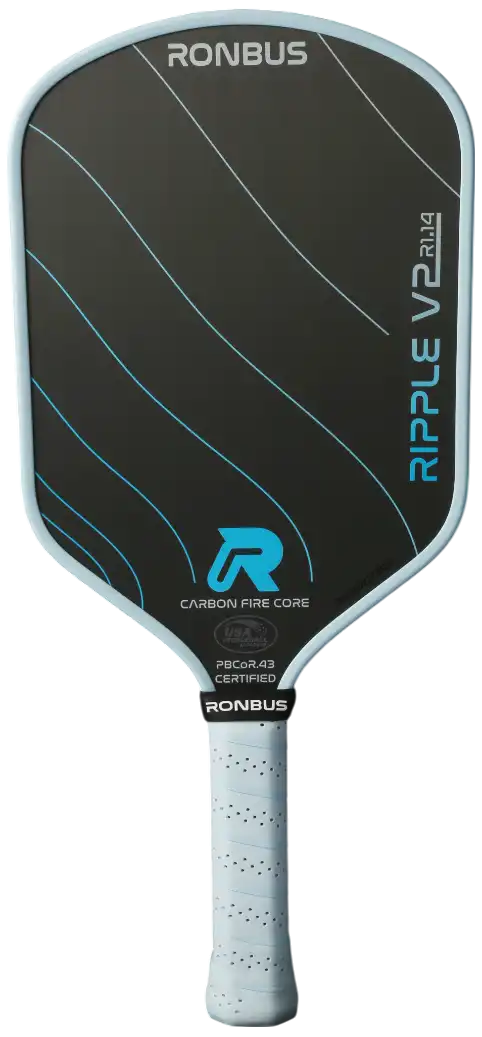
- Control
Best for strategic players who favor precision and placement over power, excelling in slow play and careful ball manipulation. - All-Court
Designed for versatile players who want the best of both worlds. These paddles balance control, power, and speed, adaptable to various playing styles. - Power
Ideal for aggressive players (aka, "bangers") who prioritize fast, powerful gameplay, sacrificing some control and sweet spot size for maximum force.
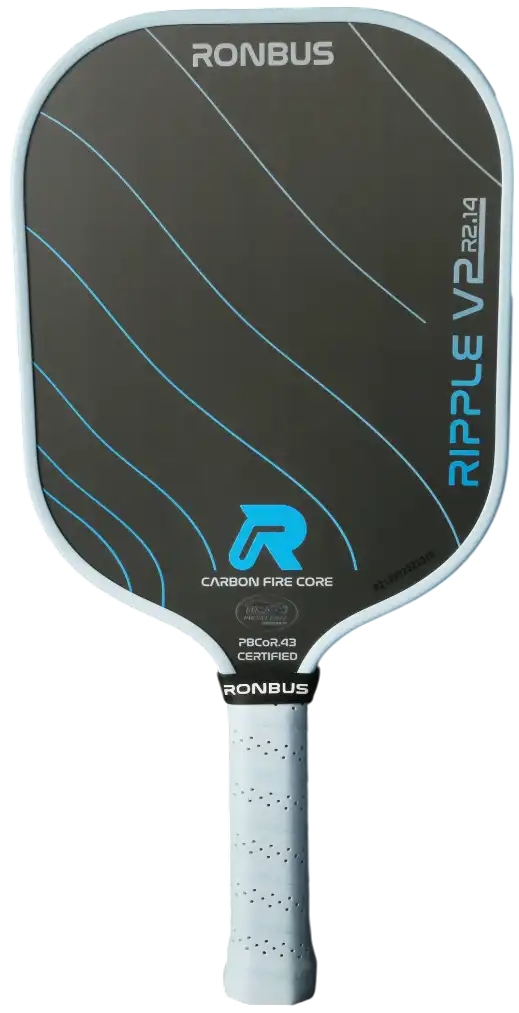
- Control
Best for strategic players who favor precision and placement over power, excelling in slow play and careful ball manipulation. - All-Court
Designed for versatile players who want the best of both worlds. These paddles balance control, power, and speed, adaptable to various playing styles. - Power
Ideal for aggressive players (aka, "bangers") who prioritize fast, powerful gameplay, sacrificing some control and sweet spot size for maximum force.
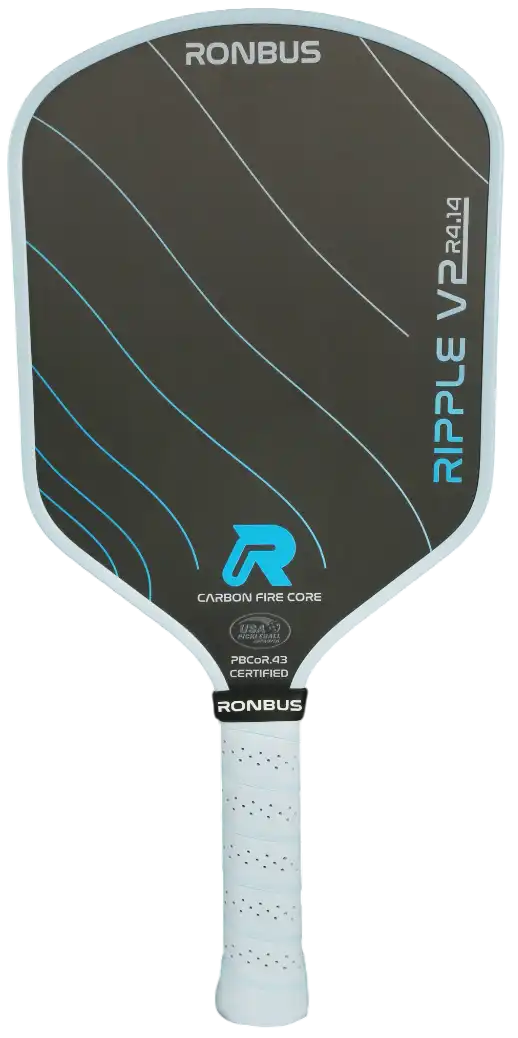
- Control
Best for strategic players who favor precision and placement over power, excelling in slow play and careful ball manipulation. - All-Court
Designed for versatile players who want the best of both worlds. These paddles balance control, power, and speed, adaptable to various playing styles. - Power
Ideal for aggressive players (aka, "bangers") who prioritize fast, powerful gameplay, sacrificing some control and sweet spot size for maximum force.
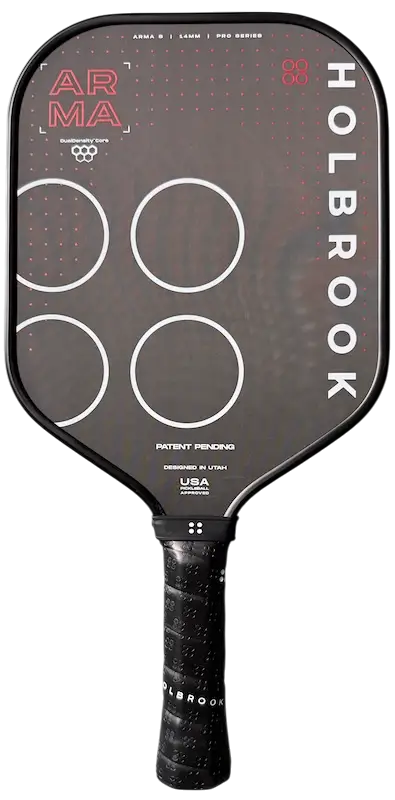
- Control
Best for strategic players who favor precision and placement over power, excelling in slow play and careful ball manipulation. - All-Court
Designed for versatile players who want the best of both worlds. These paddles balance control, power, and speed, adaptable to various playing styles. - Power
Ideal for aggressive players (aka, "bangers") who prioritize fast, powerful gameplay, sacrificing some control and sweet spot size for maximum force.
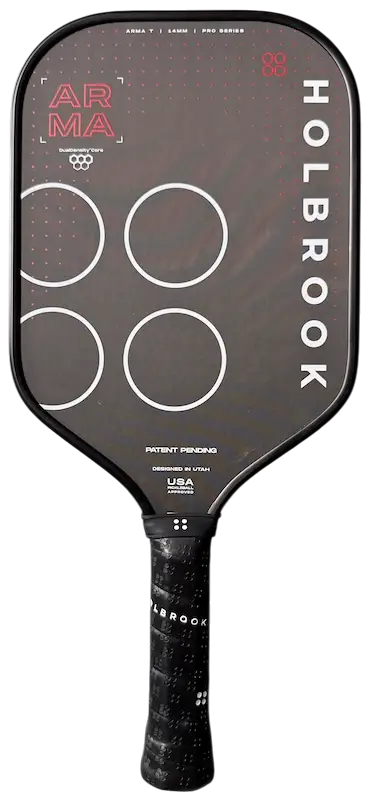
- Control
Best for strategic players who favor precision and placement over power, excelling in slow play and careful ball manipulation. - All-Court
Designed for versatile players who want the best of both worlds. These paddles balance control, power, and speed, adaptable to various playing styles. - Power
Ideal for aggressive players (aka, "bangers") who prioritize fast, powerful gameplay, sacrificing some control and sweet spot size for maximum force.
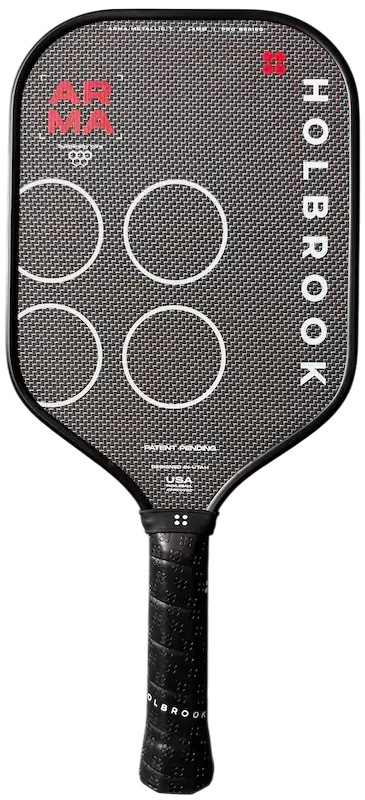
- Control
Best for strategic players who favor precision and placement over power, excelling in slow play and careful ball manipulation. - All-Court
Designed for versatile players who want the best of both worlds. These paddles balance control, power, and speed, adaptable to various playing styles. - Power
Ideal for aggressive players (aka, "bangers") who prioritize fast, powerful gameplay, sacrificing some control and sweet spot size for maximum force.
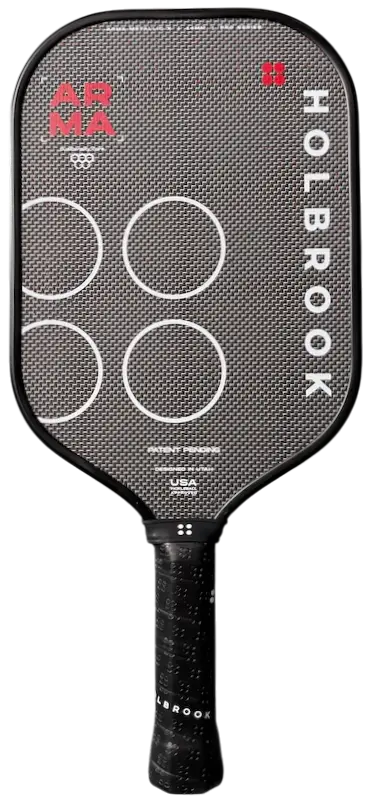
- Control
Best for strategic players who favor precision and placement over power, excelling in slow play and careful ball manipulation. - All-Court
Designed for versatile players who want the best of both worlds. These paddles balance control, power, and speed, adaptable to various playing styles. - Power
Ideal for aggressive players (aka, "bangers") who prioritize fast, powerful gameplay, sacrificing some control and sweet spot size for maximum force.
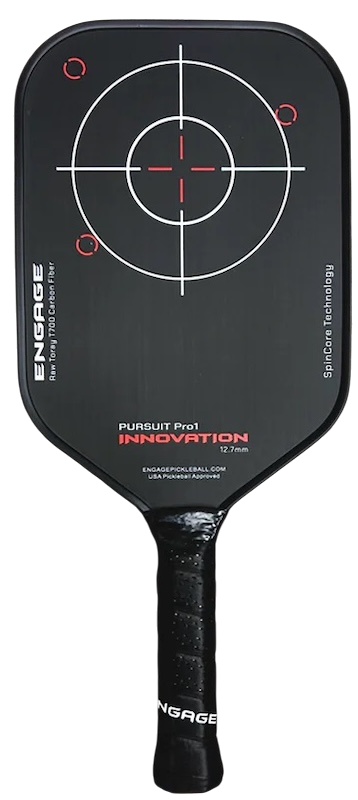
- Control
Best for strategic players who favor precision and placement over power, excelling in slow play and careful ball manipulation. - All-Court
Designed for versatile players who want the best of both worlds. These paddles balance control, power, and speed, adaptable to various playing styles. - Power
Ideal for aggressive players (aka, "bangers") who prioritize fast, powerful gameplay, sacrificing some control and sweet spot size for maximum force.
Paddle Design and Technology
Each of this week’s paddles reflects a different design philosophy, from traditional Gen 1 construction to advanced multi-material engineering. In evaluating performance, it’s important to understand not just how the paddles play—but why they play that way. Materials, shaping, core integration, and surface finishing all inform what you feel on court.
Ronbus Ripple V2 Series
Ronbus has re-engineered the Ripple from the inside out, abandoning legacy honeycomb cores entirely in favor of a new material structure called FIRE—Fiber Infused Rebounding Elastomer. This isn’t just marketing spin. The new core combines EVA foam with a 3D carbon fiber lattice, producing a spring-loaded response that feels denser and more unified than the fragmented feedback of Gen 2 or early Gen 3 thermo builds.
What’s noticeable in play is the way this structure controls rebound. The paddle doesn’t flex like foam-core builds, but it doesn’t slap like raw polymer either. Instead, it loads the ball slightly and releases with a dampened but powerful push. The impact feels central and grounded, even on aggressive shots. The surface, a raw Toray T700 carbon fiber with a textured peel-ply finish, adds grip and friction without crossing into overly gritty or sandpaper territory.
Another key point: the redesign also brings significant swing weight increases compared to earlier Ripple variants. For example, the original R2 Beta had a swing weight of ~104, while the V2 R2 is now at 116. That matters because it alters timing and feel significantly. The paddles also feature reinforced edge structures, expanded twist weights (notably 6.56 on the widebody R2), and a stiffer face response due to denser carbon layering.
Ronbus claims an extended sweet spot across the entire hitting surface due to the new structure. While that’s an overstatement—these still have tighter windows than some foam-core builds—the paddles are clearly more stable and centered than their predecessors. USAP compliance has also been validated through independent lab testing using accelerated break-in conditions, which is reassuring after the past delisting issues.
The result? A power and spin-forward paddle with Gen 3 aspirations that finally delivers on build quality, consistency, and structural identity.
Engage Pursuit Pro1 Innovation 12.7mm
The Engage Pro1 12.7mm is a return to traditional construction, but it’s done with restraint and refinement. No edge foam. No thermoforming. Just a classic polymer honeycomb core, raw carbon fiber face, and cold-press bonding.
That simplicity yields a familiar feel: crisp, clean, and controlled—especially if you're coming from older Gen 1 or Gen 2 builds. But Engage has dialed in the face-to-core responsiveness better than most. Shots feel connected without being springy. There’s enough give to manage resets and dinks, but the thin core still accelerates when you want to drive or flick.
At 121.8 swing weight and 6.05 twist weight, this model plays slightly head-heavy. That’s a tradeoff: more depth and plow-through on drives, but less speed at the net. What sets it apart is the consistent dwell feel—it doesn’t overpower or launch unexpectedly. You get what you put in.
The downside of this traditional structure is that it’s less forgiving. Off-center hits still suffer, and the lack of edge foam or structural reinforcement limits the stability window. That said, it remains one of the more refined Gen 1 builds for players who want precise feedback and classic shaping characteristics without a high learning curve.
Holbrook ARMA Series
Holbrook went in the opposite direction—engineering a Gen 3 paddle series from the ground up. The ARMA line is built around a patent-pending Dual Density™ core, which fuses two different honeycomb densities in a single stack. The upper layer is high-density to stabilize shots close to the surface, while the lower layer is softer to preserve rebound and minimize vibration.
This dual-core design is then wrapped in soft perimeter foam and encased in a molded, thermoformed shell. The result is a rigid structure with intentionally linear rebound—there’s little flex, but no hollowness either. It feels loud, sharp, and compact. The carbon face options lean firm, while the metallic face material slightly softens impact for players who want a bit more dwell or touch.
All four models include internal weighting at the throat and shaped edge walls to increase twist resistance and support directional stability. Whether you’re blocking at the kitchen or swinging from midcourt, these paddles keep their form and don’t flutter under pressure.
This is one of the few Gen 3 designs that avoids feeling “trampoline-like.” Instead, it rewards confident strokes with reliable depth and fast rebounds. For players who want something that plays firm but fair—and don’t mind a bit of edge in their paddle’s personality—this is an entirely different approach to Gen 3 design.
Internal Construction: X-Ray Comparison of Ripple V2 and ARMA Series
To better understand the structural differences between the Ripple V2 and ARMA series, I captured high-resolution X-ray images of all three Ripple models (R1, R2, R4) and all four Holbrook ARMA paddles (T, S, X, and Metallic T). These images provide a visual breakdown of how the cores are engineered and how each brand approaches internal architecture.
The goal here isn’t just to show what’s inside—it’s to connect what we see structurally with what we feel on court.
Ronbus Ripple V2 (R1, R2, R4)
All three Ripple paddles display a consistent 3D carbon lattice structure running across the entire core surface. Unlike traditional honeycomb designs, there are no polymer cells or walls. Instead, the FIRE Core integrates EVA foam through a reinforced carbon grid that provides a solid, unified mass. You can clearly see the absence of typical channel voids. This structure explains why impact feels denser and more dampened compared to honeycomb paddles. Each model shares the same construction principle, with slight shifts in geometry based on shape.
Holbrook ARMA Series (T, S, X, Metallic T)
The ARMA series reveals a dual-layer honeycomb structure. The upper layer is visibly tighter and denser—intended to stabilize high-impact shots—while the lower layer is more open to allow energy return and absorb vibration. The edge foam is clearly visible around the perimeter, forming a uniform band of material that enhances torsional resistance. These paddles also feature molded throat and sidewall reinforcements, which help maintain shape under stress. You can see the differences in internal weight distribution and balance points between models, especially when comparing the ARMA X to the ARMA S.
These images support what was felt during testing:
- The Ripple V2 paddles prioritize core solidity and direct feedback, with minimal flex or deformation.
- The ARMA paddles emphasize structure and rebound control, reinforced by edge foam and varied density layering.
For players interested in the science of paddle design—not just how a paddle plays, but how it's built—these visuals offer a rare behind-the-scenes look at what truly sets these models apart.
.avif)
.avif)
.avif)
.avif)
.avif)
.avif)
.webp)
Paddle Design and Technology
Each of this week’s paddles reflects a different design philosophy, from traditional Gen 1 construction to advanced multi-material engineering. In evaluating performance, it’s important to understand not just how the paddles play—but why they play that way. Materials, shaping, core integration, and surface finishing all inform what you feel on court.
Ronbus Ripple V2 Series
Ronbus has re-engineered the Ripple from the inside out, abandoning legacy honeycomb cores entirely in favor of a new material structure called FIRE—Fiber Infused Rebounding Elastomer. This isn’t just marketing spin. The new core combines EVA foam with a 3D carbon fiber lattice, producing a spring-loaded response that feels denser and more unified than the fragmented feedback of Gen 2 or early Gen 3 thermo builds.
What’s noticeable in play is the way this structure controls rebound. The paddle doesn’t flex like foam-core builds, but it doesn’t slap like raw polymer either. Instead, it loads the ball slightly and releases with a dampened but powerful push. The impact feels central and grounded, even on aggressive shots. The surface, a raw Toray T700 carbon fiber with a textured peel-ply finish, adds grip and friction without crossing into overly gritty or sandpaper territory.
Another key point: the redesign also brings significant swing weight increases compared to earlier Ripple variants. For example, the original R2 Beta had a swing weight of ~104, while the V2 R2 is now at 116. That matters because it alters timing and feel significantly. The paddles also feature reinforced edge structures, expanded twist weights (notably 6.56 on the widebody R2), and a stiffer face response due to denser carbon layering.
Ronbus claims an extended sweet spot across the entire hitting surface due to the new structure. While that’s an overstatement—these still have tighter windows than some foam-core builds—the paddles are clearly more stable and centered than their predecessors. USAP compliance has also been validated through independent lab testing using accelerated break-in conditions, which is reassuring after the past delisting issues.
The result? A power and spin-forward paddle with Gen 3 aspirations that finally delivers on build quality, consistency, and structural identity.
Engage Pursuit Pro1 Innovation 12.7mm
The Engage Pro1 12.7mm is a return to traditional construction, but it’s done with restraint and refinement. No edge foam. No thermoforming. Just a classic polymer honeycomb core, raw carbon fiber face, and cold-press bonding.
That simplicity yields a familiar feel: crisp, clean, and controlled—especially if you're coming from older Gen 1 or Gen 2 builds. But Engage has dialed in the face-to-core responsiveness better than most. Shots feel connected without being springy. There’s enough give to manage resets and dinks, but the thin core still accelerates when you want to drive or flick.
At 121.8 swing weight and 6.05 twist weight, this model plays slightly head-heavy. That’s a tradeoff: more depth and plow-through on drives, but less speed at the net. What sets it apart is the consistent dwell feel—it doesn’t overpower or launch unexpectedly. You get what you put in.
The downside of this traditional structure is that it’s less forgiving. Off-center hits still suffer, and the lack of edge foam or structural reinforcement limits the stability window. That said, it remains one of the more refined Gen 1 builds for players who want precise feedback and classic shaping characteristics without a high learning curve.
Holbrook ARMA Series
Holbrook went in the opposite direction—engineering a Gen 3 paddle series from the ground up. The ARMA line is built around a patent-pending Dual Density™ core, which fuses two different honeycomb densities in a single stack. The upper layer is high-density to stabilize shots close to the surface, while the lower layer is softer to preserve rebound and minimize vibration.
This dual-core design is then wrapped in soft perimeter foam and encased in a molded, thermoformed shell. The result is a rigid structure with intentionally linear rebound—there’s little flex, but no hollowness either. It feels loud, sharp, and compact. The carbon face options lean firm, while the metallic face material slightly softens impact for players who want a bit more dwell or touch.
All four models include internal weighting at the throat and shaped edge walls to increase twist resistance and support directional stability. Whether you’re blocking at the kitchen or swinging from midcourt, these paddles keep their form and don’t flutter under pressure.
This is one of the few Gen 3 designs that avoids feeling “trampoline-like.” Instead, it rewards confident strokes with reliable depth and fast rebounds. For players who want something that plays firm but fair—and don’t mind a bit of edge in their paddle’s personality—this is an entirely different approach to Gen 3 design.





Holbrook Pickleball
Arma S 14mm
Power
$
259.99
holbrookpickleball.com
Unknown

Holbrook Pickleball
Arma T 14mm
Power
$
259.99
holbrookpickleball.com
Unknown

Holbrook Pickleball
Arma Metallic T 14mm
Power
$
279.99
holbrookpickleball.com
Unknown

Holbrook Pickleball
Arma Metallic X 14mm
Power
$
279.99
holbrookpickleball.com
Unknown

Engage
Pursuit Pro1 Innovation 12.7mm
All-Court
$
259.99
engagepickleball.com
Limited Lifetime
...
Who Will Like This Paddle
Ronbus Ripple V2 Series (R1, R2, R4)
Best for: Advanced players who want a high-spin, high-power thermoformed paddle with firm structure, tunable performance, and long-term USAP compliance.
The Ronbus Ripple V2 series is designed around a patent-pending FIRE Core: a 3D carbon fiber lattice infused with EVA foam. Unlike traditional honeycomb constructions, this build delivers a denser, spring-loaded feel across all three shapes. It’s a paddle line that rewards clean technique, intentional setup, and customization.
Across the board, the series delivers elite-level spin (up to 2295 RPM), pop-heavy punch volleys, and strong structural feedback, though each shape targets a slightly different player profile.
- Ripple R1 V2 is best for players who rely on full-stroke mechanics and want maximum plow-through and depth on drives. At 124.45 swing weight (95th percentile) and 40.5 MPH punch volley speed (99th percentile), it delivers top-end pace and pop. However, it also comes with the lowest twist weight of the series (5.9, 12th percentile), making mishits more punishing. This model excels in singles, serve-heavy play, and point construction from the baseline, but demands quicker preparation up close.
- Ripple R2 V2 is the most forgiving and balanced of the three, ideal for players who want stability in hand battles and consistent control in transition zones. It features the highest twist weight at 6.65 (63rd percentile), allowing it to stay square through impact more reliably. With a 116.5 swing weight and 2295 RPM spin, it blends fast handling with elite spin performance. Players in fast-paced doubles exchanges or those who prioritize defensive resets will find this shape easy to adapt to.
- Ripple R4 V2 offers the most versatile package—117.65 swing weight, 5.95 twist weight, and a lighter overall feel (7.99 oz static weight). While the sweet spot is slightly narrower in stock form, it becomes a standout performer with minor weight adjustments. In testing, this hybrid shape became a go-to for competitive play: fast enough at the net, strong enough on full swings, and loaded with 2253 RPM of spin potential. It’s the best option for players who want a precise, adaptable paddle they can fine-tune for different formats.
All three models feature the same raw Toray T700 carbon fiber face with a peel-ply texture, offering a tactile grip on the ball without over-aggression. The FIRE Core's rebound profile is unique—more elastic than traditional thermoformed builds, yet more stable and less “bouncy” than earlier Gen 3 attempts.
This is not a line built for casual pickup play or passive resets. It’s engineered for players who like to hit with purpose, adjust their paddle's weight profile, and are comfortable fine-tuning their gear. The fact that it’s USAP PBCoR.43 certified post-break-in adds confidence for tournament players concerned with long-term legality.
Use code MPB at Ronbus.com to save.
Engage Pursuit Pro1 Innovation 12.7mm
Best for: Intermediate to advanced players with compact, topspin-oriented strokes who value clean feel over built-in forgiveness.
The Pursuit Pro1 12.7mm is deceptively capable. With a swing weight of 121.8 (87th percentile) and twist weight of 6.05, it’s slightly head-heavy but manageable. The serve speed of 51.8 MPH is moderate compared to thermoformed paddles, but what stands out is the control—it allows players to shape the ball with confidence thanks to its 2033 RPM spin output and smooth feel off the face.
Players who strike cleanly and early will appreciate the paddle’s linear feedback and solid dwell. This isn’t a paddle that will do the work for you—but it’s an honest, refined Gen 1 build for players who know how to produce their own offense.
Use code MPB10 at EngagePickleball.com to save.
Holbrook ARMA Series (T, S, X, Metallic T)
Best for: Competitive players who want a structured, thermoformed paddle with a firm response, built-in pop, and shape-specific tuning options. The ARMA series stands out for players who value directional control, explosive countering ability, and a bold feel off the face.
The ARMA paddles are built around a patent-pending Dual Density™ core, which stacks a high-density honeycomb layer near the face with a softer lower-density layer beneath. The result is a rigid feel on impact with a touch of underlying rebound—not soft or spongy, but deliberate and composed. This is complemented by full thermoforming, molded throat support, and soft perimeter foam that helps expand the effective hitting zone.
These paddles are unapologetically firm and fast. If you like to stay aggressive in hand battles, drive through contact, or push tempo in transition, there’s likely an ARMA that fits your approach. Each of the four models plays differently and targets specific player needs.
- ARMA T (Carbon) is the most explosive and feedback-forward option in the lineup. With a swing weight of 122.5 (91st percentile) and punch volley speed of 39 MPH (94th percentile), it plays hot and rewards decisive mechanics. It’s best suited for players who keep a compact swing path and want clean directional accuracy, especially on counters and drives. Despite its higher swing weight, the balance point at 24.7 cm keeps it from feeling head-heavy. This paddle is ideal for advanced doubles players who like to control pace with minimal hesitation.
- ARMA X (Metallic) is the elongated variant, built for reach and leverage. It carries a swing weight of 118.15, with a twist weight of 6.5 and serve speed of 54.5 MPH—great numbers for backhand counters, deep third-shot drives, and singles-style passing shots. The tradeoff is maneuverability: in fast exchanges, this model requires early preparation and strong hands. It excels in the hands of players who use their length and leverage as offensive tools.
- ARMA S (Carbon) offers the most maneuverability and forgiveness. With a swing weight of 110.25 (18th percentile) and the highest twist weight of the series (7.15, 87th percentile), it’s built for stability, quick hands, and smooth resets. The sweet spot feels large, and mishits retain more quality than any other model in this lineup. While it won’t deliver the same drive power as the T or X, it’s an excellent choice for players who rely on speed, hand battles, and tactical resets at the net.
- ARMA Metallic T plays similarly to the standard T but offers a more muted, slightly softer feel. The metallic polycarbonate weave dampens feedback slightly and expands control on touch shots without sacrificing too much power. With 58 MPH serve speed, 2215 RPM spin, and a balance point of 24.8 cm, it’s a nuanced variant for players who want the same offensive shape with a little more margin in softer play.
Across the lineup, spin output is solid—ranging from 2186 to 2215 RPM, depending on the model. None of these paddles feel overly grippy, but the coarse peel-ply texture and firm face structure allow for consistent shape on rolls, flicks, and topspin drives.
Visually, the ARMA series embraces a bold, aggressive identity. Face graphics are high-contrast and unconventional—circles, grids, and vertical branding—and the paddle shapes themselves are distinctive. Every model is cleanly finished with molded edge walls, branded grips, and flush edge guards. While not everyone will love the aesthetic, Holbrook isn’t chasing the minimalism trend. These paddles are built to be seen and heard.
If you’re the kind of player who accelerates through contact, favors direct feedback, and wants a firm but responsive paddle that doesn’t feel generic, the ARMA lineup deserves serious consideration.
Use code [MPB] to save at checkout when the ARMA paddles go live on June 10.
Aesthetics & Design
Visual identity and design finish may not change how a paddle performs, but they do shape perception and ownership experience—especially when paddles in this price tier start north of $250. Across the four paddle lines reviewed this week, each brand takes a different approach to design language, form factor, and finish quality.
Ronbus Ripple V2 Series
The Ripple V2 models share a minimalist yet futuristic look. All three shapes—R1, R2, and R4—feature clean matte black faces accented by sharp, asymmetrical blue line work. The branding is subtle but distinctive. A small “Ronbus” text sits at the top of the face, while the “R” logo and model ID (R1.14, R2.14, R4.14) are cleanly integrated near the throat.
What stands out most is the functional symmetry. The paddles look balanced, the curves intentional, and the design avoids the overdone grid patterns or faux-fiber textures that have become common. The white edge guard and grip contrast nicely with the darker body, giving it a sleek, almost clinical profile. These are paddles that look engineered—not stylized.
In hand, the build quality is tight. There are no loose seams or exposed bonding transitions. The matte finish feels premium, and the face holds up well under repeated play with minimal flaking or wear. From a design standpoint, the Ripple V2 achieves a rare combination: technical polish without trying too hard to stand out.
Holbrook ARMA Series
The ARMA lineup is loud, angular, and intentionally aggressive. The face design features a high-contrast combination of circles, pixel grids, and branding elements—clearly built to distinguish itself from the sea of raw carbon minimalism. The placement of the “ARMA” and “HOLBROOK” labels—especially the vertical text—commands attention.
While the carbon-faced ARMA paddles have a sharp, textile-like pattern that reflects under light, the metallic variants come off darker and slightly more muted. That contrast gives players a subtle aesthetic choice depending on whether they prefer a high-tech or stealthier look.
Physically, these paddles feel solid and reinforced. The grip wrap is consistent across models—well-padded, grippy, and stamped with Holbrook's branding. The edge work is uniform, and the molded throat transitions give the paddles a structurally complete look. This is a bold design direction for Holbrook, and while it may not appeal to traditionalists, it makes a strong visual statement.
Engage Pursuit Pro1 Innovation 12.7mm
Engage takes the opposite approach: minimalism to the extreme. The face is solid matte black with barely any graphics—just a small logo and red “INNOVATION” text near the base. There are no shapes, lines, or decorative elements—just raw, uncoated carbon fiber across the entire face.
Depending on your perspective, this is either sleek or sterile. The benefit is total focus—there’s nothing visually distracting, and the branding feels like an afterthought rather than a headline. On the downside, the paddle does little to visually separate itself from lower-cost raw carbon builds.
Fit and finish are solid, though not elite. The edge guard is slightly thicker than average and the handle build is functional, though a visible ridge at the throat detracts from the overall polish. It's a performance tool first—and it looks like one—but in terms of visual design, it plays things safe.
Closing Thoughts
This week’s paddle lineup delivered more depth, more contrast, and more evolution than most episodes I’ve covered this year. The Ronbus Ripple V2 represents a serious redemption arc—one that finally brings compliance, structure, and performance into alignment. The Holbrook ARMA series breaks out of the Gen 3 mold with sharp identity and structural clarity across four well-built options. The Engage Pursuit Pro1 12.7mm quietly proves that Gen 1 still has life left—especially when done with restraint and feel. And the unnamed prototype? It’s already setting a high bar for what power paddles could look like in the next cycle.
There’s no one-size-fits-all answer here. Each of these paddles caters to a different kind of player—different hands, different speeds, different priorities. The key is knowing your own tendencies and being honest about what tools actually help you perform.
If you want more detail on specs, comparisons, or what fits your game best, the full Paddle Finder is live at mattspickleball.com and updated with every paddle in this post. You can also catch the full breakdown on YouTube (POTW Episode 12) or stream it on the Matt’s Pickleball Podcast.
As always, drop questions in the comments, send a DM, or come find me on Discord if you want to dive deeper. Thanks for reading—and I’ll see you next week with more gear, more insights, and another round of testing.
Discount Code
Similar Paddles


%20(1100%20x%20220%20px)%20(1000%20x%20300%20px)%20(1).webp)



















